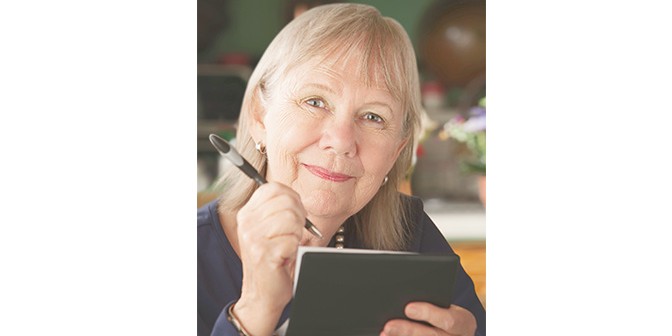(Photo courtesy of Partners In Care)
When it comes to philanthropy, men and women share similar values. Help those less fortunate. Bring about positive change. Carry on the family legacy. Perpetuate what is good and right in our society, and minimize or eliminate the bad. But men and women differ in what they want from the philanthropic experience, beginning with their definition of the word itself.
Time, Talent, and Treasure. These three simple words, spoken in that order, topped the list of definitions for “philanthropy” from dozens of women I recently interviewed. I began to wonder if they had all heard the same sermon on Stewardship Sunday. Not so. It appears that women tend to view the work of philanthropy in terms of direct, personal involvement and not just the singular act of writing a check. Not one woman described philanthropy as an act of charitable giving by a wealthy person.
Their decision-making process that results in philanthropy is values-based, multi-faceted, and organized. Women want charities to know that they have much to offer—their time for leadership and other volunteer activities, their expertise and ability to create innovation, and their money.
Twenty years ago, when development officers such as myself were first learning how to tap into this mysterious new constituency we called “the female philanthropist,” our attention focused on the woman who had inherited family money and the widow who was managing the wealth of her late husband.
We rushed to gain an understanding of the interests of these women, certain that their greatest desire was to carry forth a legacy established by others. But soon we learned that women wanted us to expect more from them. They wanted a more authentic and personal relationship with the organization’s leaders. They wanted social companionship, candid conversation, and honest emotions. They wanted information, not a lecture. And they wanted to refine, and in some cases, re-define their family legacy.
Men and women both respond to an appeal for support because they believe in the purpose of a philanthropic cause. Integrity is of utmost importance and public trust is essential. But men and women often differ in how this is satisfied. Women tend to become more deeply involved in the organization, developing the relationships and having the conversations needed to inform their instinct. Knowledge gained in this process helps them make sound decisions.
Women are also exhibiting financial clout and leadership in business and investments that will inevitably change the face of philanthropy. More and more women are becoming business owners, executives, franchisees, and top producers in their chosen profession. As their net worth increases, their giving increases. Their giving is an expression of gratitude for their prosperity. It is a joyful act, seamlessly integrated into their very full lives.
Women make three times the number of donations as do men, sending a clear message that women want to be taken seriously and treated equally when it comes to their capacity to fund change and transform our world. They are taking their clout, expertise, and humor into the board rooms and donor programs at our nonprofit organizations, where they are exhibiting intelligence, influence, and impact. And at home, they are teaching their children about giving as well.
Here in Central Oregon, women actively participate in numerous ways to further the missions of hundreds of charitable causes. At Partners In Care where I serve as chief development officer, the majority of our donors, volunteers, and staff are women. And the largest bequest in our history came from the estate of a woman who gave similar major gifts to many Central Oregon nonprofit organizations. The impact of her philanthropy will be felt for years to come.
Women’s giving circles have also formed. A good example is the 100+ Women Who Care Central Oregon chapter founded in late 2014. By the third meeting, the number of women philanthropists had more than doubled to over 250. At each meeting, the women in attendance hear a compelling presentation from three organizations and vote on which one will receive their collective support of over $25,000.
One participant echoed the sentiment of many women who enjoy giving in this manner, “Our individual gifts are important, but together, they are an even more powerful force for change.”



